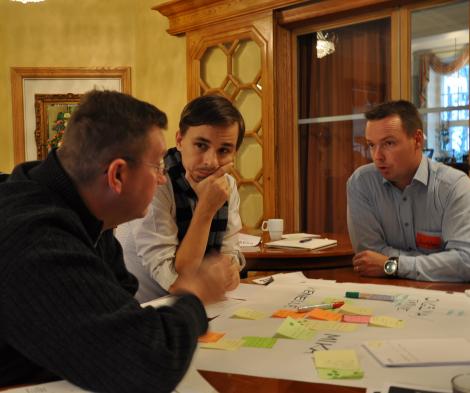In the beginning of 2009, Demos Helsinki and Sitra launched a project with the goal of creating a new, people-oriented approach to energy-saving as a social challenge. The project was titled Peloton, which means ‘bold’ in Finnish. It has been a massive success story that builds confidence in the new economy.
There were six objectives in total. Here is a summary on how well the objectives have been met:
1) Reduce the energy needs of Finns
Through the Peloton project, the concept of a sustainable lifestyle has reached out to groups of professionals and enthusiasts who have not previously been familiar with it. The reduction of energy needs has been enabled by the introduction of new products and services to the market.
2) Activate gatekeeper groups in energy consumption
The project has activated new groups to identify how their work influences the energy consumption of people. This has been a new, inspiring insight for many professional groups, and it has been a path for finding totally new actors for a new, energy-smart economy.
3) Create services, products and social innovations that enable a low-carbon way of life for citizens
Instead of extensive structural changes, the Peloton project has created user-friendly products and services that make a sustainable way of life both possible and desirable. Rautakesko’s energy master service, for example, makes renovation services widely available for different consumers, and Hukkatila, the Seinäjoki-based winner of the Peloton Innovation Camp is the first service to develop the use of underutilised property.
4) Communicate about smart energy consumption in an inspiring and topical way
Addressing challenges and problems is not interesting communication in the long term. Most Finns are fully aware of climate change and its impact. The Peloton project has successfully communicated a familiar theme through new products and services, positive approaches and opportunities. Climate change is regarded as a business opportunity.
5) Determine the obstacles and opportunities for expanding the gatekeeper mindset and approach in Finland
The gatekeeper mindset has become one of the tools through which the actors in the energy sector are outlined. The ERA 17 programme, for example, lists a number of gatekeepers.
6) Gather a vanguard of leaders with whom shared, inspiring ways of working will be developed
Peer workshops have been the backbone of the Peloton project. In the workshops, more than 250 professionals in a total of 12 sectors have received training in how to boldly create a new, energy-smart economy. Through the peer workshops, the Peloton approach has been introduced to different areas in society and business. In addition, the two Peloton Innovation Camps organised in 2011 were attended by 150 leading specialists who gratuitously developed sustainable products and services. The Peloton project has become a community.
A triangle figure of change was prepared at the start of the Peloton project. In the figure, change proceeds from brand building to peer development and innovation and finally to new products and services. Taking the project scope into account, a significant number of them has been produced. The quality is also good. In the figure, process innovations created during the project are marked in blue, and the red indicates new products and services (and the new companies that create them) that have an impact on the energy consumption of people.

The Peloton project’s triangle figure of change.
To boldly progress towards the objectives
The Peloton project will now continue its existence as a stand-alone project. Sitra’s funding for the project expired at the end of 2011.
Further information
Vesa-Matti Lahti, Sitra Energy Programme,
email: firstname.lastname@sitra.fi, phone +358 50 3873 188
Tuuli Kaskinen, Demos Helsinki,
email: firstname.lastname@demos.fi, phone +358 50 5149 752
